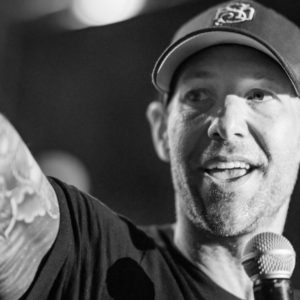Laugh Now, Cry Later

Laughter is a worldwide language that has no boundaries. At the heart of this shared human experience you can find the art of comedy.
Whether it’s a stand-up routine that leaves an audience in stitches, a witty sitcom that brings joy to living rooms or a cleverly crafted film that fills up theatres of people waiting to laugh, comedy has a unique ability to connect people and bring moments of joy into our lives.
Along with that, comedy has the power to divide. Especially in today’s day and age, where “cancel culture” is so active and people seem to be waiting for a reason to tear others down online. Writing a joke can be like walking on eggshells – if you make the wrong move it can all go down.
Why We Laugh
Comedy serves so many purposes in our lives, ranging from providing entertainment and a break from the real world, to giving a satirical point of view on the world we live in.
“It can be used as a tool for escapism and the relievement of suffering, as a means to question authority,” said Anthony Truant, comedy buff. “It can be used to release the tension in an otherwise awkward situation and simply a method to highlight the seemingly ridiculous nature of reality.”
When it comes down to it, comedy has one main goal – to make you laugh. Comedy seeks to amuse you, take your mind off things and entertain. Through laughter, we find some relief from the challenges of our day to day lives and comedy can become a powerful tool for dealing with the dark days.
The Best Medicine
Numerous studies have explored the therapeutic benefits of laughter. Laughter triggers the release of endorphins, the body’s natural feel-good chemicals, promoting an overall sense of well-being, according to research. It can reduce stress, lower blood pressure and even improve cardiovascular health. Along with all these physical benefits, it can also help you out mentally.
“When I was battling deep depression, my therapist told me to do the things that used to make me laugh,” said Joe Spector, a mental health advocate and retired firefighter from Phoenix, Arizona. “So that’s what I did every day. I sat down and watched some comedy and honestly for a while it felt like it was fake it till you make it.”

Joe Spector on stage giving a motivational speech. (Courtesy of Joe Spector)
Although not sensing the instant results, Spector continued to do the things that made him laugh and not give up on his right to be happy.
“Over time it started to work,” said Spector. “It’s like your brain remembers how to be happy again. For me, what’s so therapeutic about it is I can laugh with my loved ones or even better, make my kids laugh. And not just a chuckle, like when I get them to make one of those good belly laughs, that’s really where I find my joy in life.”
Laughter is the best medicine may be a cliche line, but it truly does resonate in the lives of many.
The Arts within the Art of Comedy
Comedy comes in many forms, each with its own distinctive style and appeal. Stand-up comedy, characterized by a solo performer delivering a series of humorous stories, observations and punchlines, allows for a direct and intimate connection between the comedian and the audience.
Improvisational comedy, on the other hand, relies on spontaneity and quick thinking to create humour on the spot, making a sense of unpredictability and shared laughter.
“I really think it’s the atmosphere you create with the audience,” says Alex Monk, one of the hosts and performers of WIT, a Windsor based improv group. “It’s the first time any of those jokes have ever been heard and they’ve been created with that audience. I think it’s a little more magical than a typical stand up set.”

Alex Monk on stage performing Improv comedy in Windsor, Ontario. (Courtesy: Alex Monk)
Meanwhile, comedic films, from slapstick to sophisticated satire, use the visual medium to deliver humour through clever storytelling, witty dialogue and memorable performances. There are also sitcoms which have been a staple of television for decades, providing audiences with fictional characters and relatable scenarios that invite laughter into our living rooms.
But now that we have an understanding of why we laugh, how it helps us and the different styles that make us laugh, it is time to take a deeper look into a specific kind of person who puts a grin on our face – the stand-up comedian.
The Life Of
A typical comedian’s life isn’t what you think. Not everyone can be rolling in cash like Kevin Hart or dominate the podcast world like Joe Rogan. For the average comedian, it is a lot more of a humble life.
“The average comedian spends way more of their time and money than anyone would think trying to even make a dent in the scene,” said Skippy Rose, a female comedian from Detroit, Michigan. “Most comedians spend 40+ hours at another job unrelated to comedy, five hours searching for gigs, applying to gigs and making their own promo materials.”
And it doesn’t end there, in addition to having to be your own salesmen while trying to make ends meet at the same time, comedians have to prepare material for when they get on stage.
“This isn’t even mentioning the fact that we all are constantly writing jokes and most of us have additional comedy side projects like podcasts or sketch shows that we maintain,” said Rose. “Overall it’s a lot of effort for something that pays so very little until you reach the big time.”
Although some comedians come in with a more calculated writing approach that may take some time, there are some who don’t take the conventional route of writing jokes.
“When it comes to writing material, I never sit down and try and think of new jokes,” says Floyd Jones, a comedian also from Detroit, Michigan. “Almost all of my jokes come from me just thinking of something in the moment, in a cause and effect type of way. For example, if I’m stuck in traffic, I’ll think of a bunch of driving jokes.”
For a comedian, one of the most important things is, well, having a crowd to perform their material for. Whether it be the local comedy club or even the pub that holds open mic nights every now and then, if you have nobody to tell your jokes to, what’s the point of having them?

Floyd Jones performing live infront of a crowd in Detroit, Michigan. (Courtesy: Floyd Jones)
“You got to go to as many open mics as possible every week,” says Rose, about how to lock down gigs. “You make friends with the other comics at those open mics, you go to the shows those comics are at. You learn who the bookers are who put them on those shows, you reach out to said bookers saying you’d like to be on a show and provide your availability, five to seven minute clip of material and a headshot. You post comedic material regularly online and approach venues without shows and try to start a show yourself.”
Cancel Culture
When it comes to writing material and telling jokes, nowadays you can’t just say what you want. There’s people who may be offended and phone cameras recording you, waiting to post the latest slip up. What can be said by some, can’t be said by others. This may not affect some comics, however it has affected many in the past.
Comedians have received backlash for an old tweet that may surface or a clip from an old podcast episode. What you can say may be based on the colour of your skin, gender you’re attracted to and other social statuses.
“I absolutely think that I can say more as a black comedian,” says Jones. “Prime example, the n-word.”
Along with having the right to bear one of the most controversial words today, Jones believes it allows him to touch on other topics that have to do with the colour of his skin.
“I can also talk about racial subjects with less sensitivity because it’s something I personally have to deal with,” says Jones. “It’s not the same for a white guy, especially now. People will come for your neck if you say something they don’t like.”
Although feeling he has an advantage when it comes to touching on topics to do with his race, Jones still will put a filter on some of his material in favour of keeping things light for the crowd to enjoy.
“There are certain jokes that I’ll write and I immediately know I’ll never even tell it,” says Jones. “Sometimes the subject is too real. I think those jokes can just kill an audience’s mood and at the end of the day I aim to be funny.”
Funny is the main goal. All comedians at the end of the day strive to be funny and for some, being funny doesn’t entail jokes that might offend.
“Personally, I wouldn’t say I feel restricted just because I’m the type of person that doesn’t really find a lot of those types of jokes funny,” says Rose. “My rule is that you can put down your own people but not others and even then, it’s nuanced for me.”
It’s not only the jokes you’re telling, but the people you are telling them to. Knowing your surroundings and who is on the receiving end of the jokes being told is a key factor.
“In general, I think a comedian is restricted to what an audience wants to laugh at because at the end of the day they are the entertainers,” Rose added. “That’s why I find it interesting when comedians get canceled for jokes they tell on their specials because you know for a fact that they have told those same jokes many times to different audiences and would not have put the material in the special if they hadn’t gotten laughs prior.”
Final Set
In the end, comedy is here to make us laugh. It is here to bring us together and create moments through shared laughter and without it the world would be an even darker place for many. Whether you’re the one telling the jokes or laughing at them, laughter and comedy is something that should be cherished. As for the dark side and the consequences that come with some comedians, maybe it’s time to realize that these are just jokes. Laugh now, cry later.


